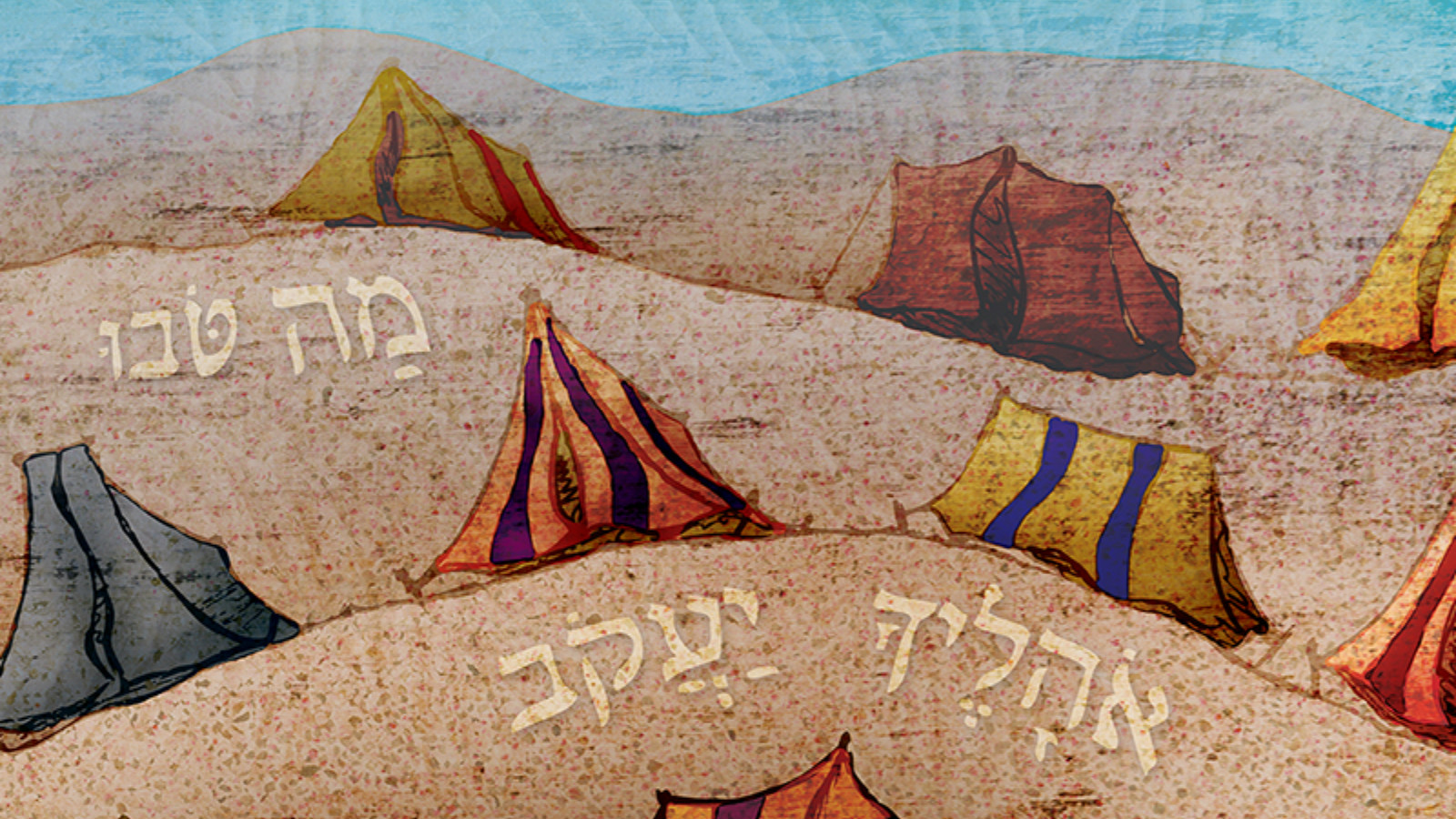Commentary on Parashat Balak, Numbers 22:2 - 25:9
Each week I announce to my kids, “This is my favorite Torah portion!” They laugh and roll their eyes. “Momma, you say that all that time!”
I’m also known to shout: “This is my absolute favorite holiday!” Again, they laugh. Each week or each month or each season, I really do feel like that Torah portion or that holiday or that seasonal cycle – is my absolute favorite.
This week, however, is the only week of the year when I get to announce, with all honesty, that “Hey kids, this is my least favorite Torah portion — the worst!” Which will get them asking, à la the Passover seder, “What, momma, is so horrible about it?”
Well, for starters, our Torah portion, titled Balak, features the king of Moab trying to convince a prophet named Balaam to curse (and ultimately, destroy) the Israelite nation. We dig deeper and the portion doesn’t pass the Bechdel Test (not even close). Every character refuses to take no for an answer. A donkey is beaten with a stick. Bribes are offered. Women are called whores. If that isn’t enough, people are hanged in the heat of the sun and 24,000 people are slaughtered by plague in the final verses.
Not exactly a winner of a Torah portion.
So how should we read this text? How do we tell it to our children? Or sit with it in synagogue, or in our homes, or on our way? What do we glean, when the foundational material is, well, kind of rotten? Like most difficult texts, this is the stuff of lessons learned. Of solid takeaways. Of reminders that our Torah sometimes tells us what to do, but also Torah tells us what not to do. Torah is our guide, in all circumstances, even where rulers never listen to one another and two women never, ever have a meaningful conversation about anything important.
Our ancient rabbis were also incensed. They didn’t find the protagonists of our Torah portion any more favorable than I do. So loathed is Balaam — the prophet that is encouraged by the king to curse and destroy the Israelite nation — that the Talmud rewinds the clock and plunks him down into Pharaoh’s court in Egypt as one of his advisers. We are pointed back to one of the worst moments in our collective narrative: the killing of our own baby boys as decreed by Pharaoh. Balaam, according to the rabbis, was the one who advised Pharaoh to tell the midwives to kill the baby boys on the birthing stool. Is there anything worse? Of all the places to relocate Balaam, our rabbis make him the force behind our potential demise as a people. (Sanhedrin 106a)
The ancient rabbis know too well the power of evil decrees, of speech that leads to the dehumanization of entire populations. They’ll do what they can to keep Balaam from speaking. In another rabbinic text, they placed a big metal hook inside Balaam’s mouth, so that each time he tried to utter a curse, his mouth was hooked closed. His speech was the speech of murder. (Sanhedrin 105b)
Where do we go with all of this? Balaam did, in the end, bestow many kind words and blessings upon the Israelites. He did, in the end, refuse the king of Moab’s insistence that all the Israelites be cursed. Does he deserve any credit at all? Not really. It wasn’t genuine, all those blessings. They weren’t his. They came from God. Balaam was just the vehicle, the vocal chords, the mouth that formed the words so the world could hear.
What do we tell our children? To visualize a hook inside their own mouths? To make sure that unless the words create life and blessing and truth, that our mouths remain closed? That when we speak, we have the power to erase an entire population? To dehumanize and murder?
Yes – we should say all of these things. While we’re at it, let’s ask our creative children what the hook looks like. How big is it? In fact, here’s a crayon. And some paper. The rabbinic hook is one of the best gifts we can give our kids, and ourselves. The reminder that with our words and with our decrees, worlds are created, and worlds are destroyed.
Torah
Pronunced: TORE-uh, Origin: Hebrew, the Five Books of Moses.
Midrash
Pronounced: MIDD-rash, Origin: Hebrew, the process of interpretation by which the rabbis filled in “gaps” found in the Torah.
Talmud
Pronounced: TALL-mud, Origin: Hebrew, the set of teachings and commentaries on the Torah that form the basis for Jewish law. Comprised of the Mishnah and the Gemara, it contains the opinions of thousands of rabbis from different periods in Jewish history.


